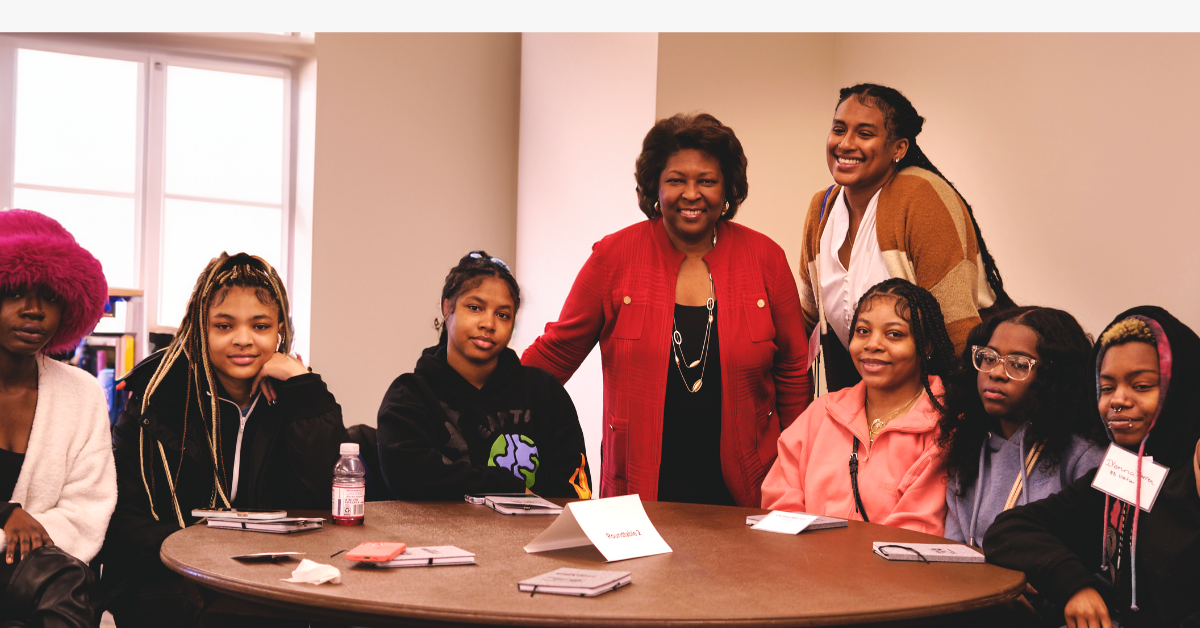
College campuses can anticipate fewer Black and Latino male students enrolling in classes this fall—a reality that will have lasting consequences for YMOC. A survey conducted by YouthTruth compared findings between the high school graduation class of 2019 and 2022. They surveyed 22,000 students, discovering:
- The percentage of all male students who want to go to college dropped from 74% to 67%.
- The percentage of Latino students who want to go to college dropped from 79% to 71%.
- The percentage of Black students who want to go to college dropped from 79% to 72%.
The report further pointed out that “the graduating class of 2022 has lived more than half of their high school career during the COVID-19 pandemic” and while that’s certainly a significant factor, other hurdles like social inequities and systemic racism shouldn’t be ignored.
Of those who even enroll in higher education, the National Student Clearinghouse Research Center found an 8% drop in college attendance during the summer of 2020 compared to the summer of 2019 among Black students.
Looking at the Root Cause
United Way of the National Capital Area held a Change Makers Education Series webinar* to address systemic racism and create actionable steps both community members and corporations can take to help YMOC break barriers. The goal of the webinar was to have an in-depth conversation on the systemic issues impacting under-resourced communities.
Below, we’ve outlined five steps that parents, caretakers, teachers, mentors, policymakers, and community and corporate partners can take to help YMOC find success in higher education and their respective career paths.
1. Strive for Excellence
YMOC need to be encouraged to strive for excellence. Society has boxed these men into a deficit mindset by labeling them “minorities” or “at-risk,” along with the harmful stereotypes these labels allude to. Generation upon generation hears these labels and believe they cannot succeed beyond minimum expectations.
Many YMOC are trained to simply get by—not to excel. They think that if they pass, obey, toe the line and not get in trouble, they are doing their best to meet society’s expectations. That framework needs to be rejected and replaced with a foundation that motivates YMOC to live up to their excellence and realize their fullest potential—even beyond the status quo society places on them because of their skin color or socioeconomic background.
2. Financial Advancements
YMOC need to learn the various pathways to financial advancement. Rather than teaching them basic financial literacy, they should be taught to achieve financial wealth. Let’s provide YMOC with the tools to advance their financial wealth as entrepreneurs, professionals and individuals who want to build generational wealth.
3. Mentors
YMOC need mentors to expose them to career paths that align with their strengths. The most critical transitional phase for YMOC is the pipeline between middle school to high school. This is the time when latching onto a mentor can positively influence how these young men see their strengths and learn about the career paths they can use to their advantage.
4. Community Investments
Community investments are instrumental in supporting all the efforts already mentioned above. Support from community organizations like United Way NCA, corporations and individuals can help to fund programs beyond what certain states can provide.
5. Policy Change
There are collective actions the community can take to help uplift and advocate for the needs of YMOC. This can affect a wide array of areas like equity in education, support for mental and physical health or expanding financial opportunities. Change can start as an agenda item in a PTA meeting and grow into a movement recognized by corporations, philanthropists and even policymakers.
How Can You Make a Difference Today?
Your United Way is looking for volunteers who are willing to assist our young men of color. If you increase expectations for yourself, you can inspire YMOC to do the same, knowing they will feel uplifted and supported every step of the way. Reach out to your United Way NCA to get involved. When none are ignored, all will thrive.
* We’d like to acknowledge and thank those who contributed to the Change Makers Education Series webinar:
- Ian Gordon, Vice President, Community Impact & Engagement, United Way of the National Capital Area
- Brian “Heat” Hamlin, Program Manager, Prince George’s Community College’s Diverse Male Student Initiative
- Heath Carelock, Director and Financial Counselor, United Way NCA’s Financial Empowerment Center at Prince George’s Community College
- Anthony Featherstone, Executive Director, Worksource Montgomery
- Eldridge Allen, Senior Business Development Manager, The Greater Washington Urban League


